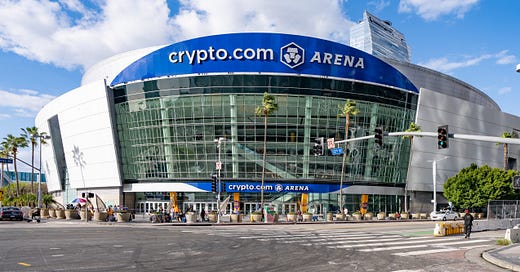As Everton and Tottenham Hotspur eye stadium naming rights sales, are they really the golden goose for football clubs?
The Bottom Line speaks to Daniel Haddad of Octagon to compare the US and UK
Everton, this week, gave an update on their search for a stadium naming rights partner for the purpose-built, 52,888-seater stadium on the banks of the River Mersey they will move into for the 2025/26 season.
Having called Goodison Park home since 1892, the Toffees connection to the stadium is deep-rooted. Having such traditions means that selling inventory like stadium naming rights has been off the table, in the same way that it would be for Liverpool at Anfield and Manchester United at Old Trafford.
The move to the new stadium has opened up a new revenue stream, though, with the goal for the stadium to be a multi-purpose venue for 365 days of the year, not solely relying on matchdays for footfall, core to the aims of the project being pursued in the first place.
A live event arena with good transport links, one capable of hosting football matches and music concerts, with a large number of bars, restaurants, and pubs on site to bring people in all year round has appeal to would-be stadium naming rights partners, and Everton’s chief commercial officer, Richard Kenyon, told fans that “good progress’ had been made.
But just how valuable a part of the sponsorship inventory is stadium naming rights in English football?
There is often the temptation to draw comparisons with the kind of figures achieved in North America, but the two markets are not the same, and the whole ecosystem around sports team sponsorship in the US is vastly different from the one that exists in the UK.
Tottenham Hotspur has one of world sport’s most state-of-the-art sporting arenas, a 62,850-seater stadium that has a retractable pitch to enable it to host NFL games, an F1 Karting experience underneath the stadium, and a location in one of the most densely populated cities in the world.
Spurs’ home, having been opened in 2019, remains called the Tottenham Hotspur Stadium. Talks with major blue-chip companies have been held but no deal has been inked, with Spurs chairman Daniel Levy last year telling supporters at a Fan Advisory Board meeting that they were no longer as set on selling the naming rights as they once were.
Levy had, reportedly, been seeking tens of millions per annum for naming rights over a long period of time. With those kinds of figures regularly achieved in the US when it comes to stadia which is inferior to Spurs, in smaller market cities, why would Levy not be bullish over achieving such figures?
To find out more about the market for stadium naming rights for UK football clubs compared to major North American sports teams, the Bottom Line spoke to head of commercial strategy at global sports agency Octagon to discover more, and find out why it might not be the golden goose it is in the US.
Keep reading with a 7-day free trial
Subscribe to The Bottom Line to keep reading this post and get 7 days of free access to the full post archives.





